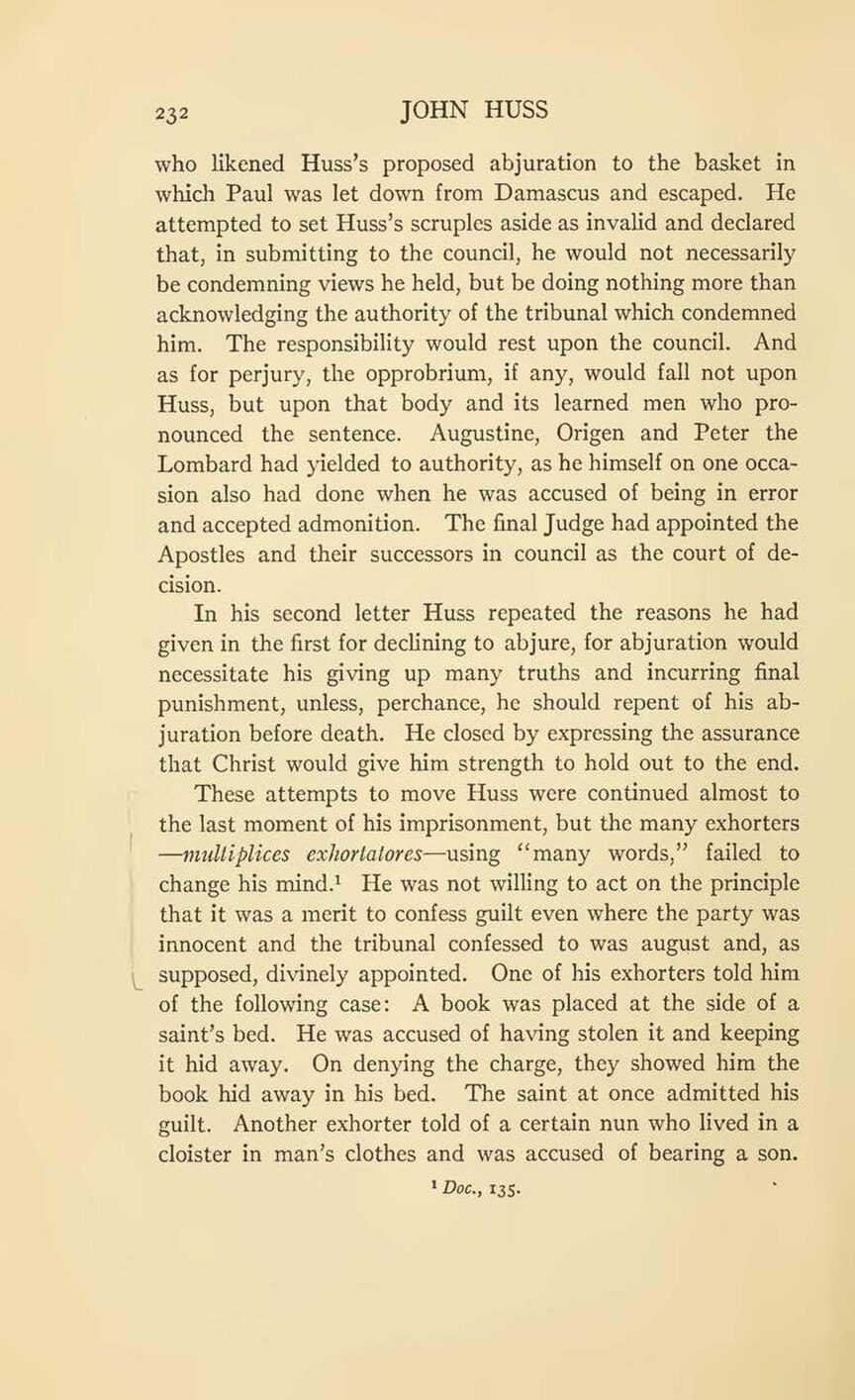who likened Huss’s proposed abjuration to the basket in which Paul was let down from Damascus and escaped. He attempted to set Huss’s scruples aside as invalid and declared that, in submitting to the council, he would not necessarily be condemning views he held, but be doing nothing more than acknowledging the authority of the tribunal which condemned him. The responsibility would rest upon the council. And as for perjury, the opprobrium, if any, would fall not upon Huss, but upon that body and its learned men who pronounced the sentence. Augustine, Origen and Peter the Lombard had yielded to authority, as he himself on one occasion also had done when he was accused of being in error and accepted admonition. The final Judge had appointed the Apostles and their successors in council as the court of decision.
In his second letter Huss repeated the reasons he had given in the first for declining to abjure, for abjuration would necessitate his giving up many truths and incurring final punishment, unless, perchance, he should repent of his abjuration before death. He closed by expressing the assurance that Christ would give him strength to hold out to the end. These attempts to move Huss were continued almost to the last moment of his imprisonment, but the many exhorters—multiplices exhortatores—using “many words,” failed to change his mind.[1] He was not willing to act on the principle that it was a merit to confess guilt even where the party was innocent and the tribunal confessed to was august and, as supposed, divinely appointed. One of his exhorters told him of the following case: A book was placed at the side of a saint’s bed. He was accused of having stolen it and keeping it hid away. On denying the charge, they showed him the book hid away in his bed. The saint at once admitted his guilt. Another exhorter told of a certain nun who lived in a cloister in man’s clothes and was accused of bearing a son.
- ↑ Doc., 135.
